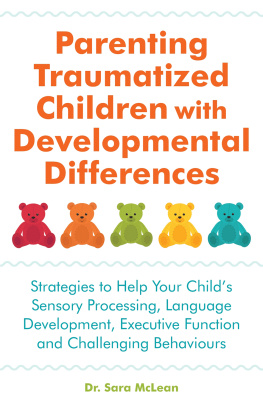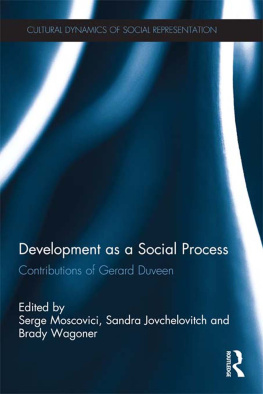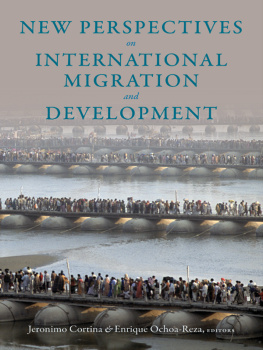Exploring the Dynamics of Human Development
- Oxford University Press is a department of the University of Oxford. It furthers
- the Universitys objective of excellence in research, scholarship, and education
- by publishing worldwide. Oxford is a registered trade mark of Oxford University
- Press in the UK and certain other countries.
- Published in the United States of America by Oxford University Press
- 198 Madison Avenue, New York, NY 10016, United States of America.
- Oxford University Press 2016
- All rights reserved. No part of this publication may be reproduced, stored in
- a retrieval system, or transmitted, in any form or by any means, without the
- prior permission in writing of Oxford University Press, or as expressly permitted
- by law, by license, or under terms agreed with the appropriate reproduction
- rights organization. Inquiries concerning reproduction outside the scope of the
- above should be sent to the Rights Department, Oxford University Press, at the
- address above.
- You must not circulate this work in any other form
- and you must impose this same condition on any acquirer.
- Library of Congress Cataloging-in-Publication Data
- Names: Raeff, Catherine, 1964 editor.
- Title: Exploring the dynamics of human development : an integrative approach / Catherine Raeff.Description: 1 Edition. | New York : Oxford University Press, 2016. |
- Includes bibliographical references and index.
- Identifiers: LCCN 2016011888 (print) | LCCN 2016016063 (ebook) |
- ISBN 9780199328413 (hardback) | ISBN 9780199328420 (ebook)
- Subjects: LCSH: Child psychology. | Child development. | Thought and thinking. |
- Cognitive psychology. | BISAC: PSYCHOLOGY / Developmental / Child. |
- PSYCHOLOGY / Social Psychology. | PSYCHOLOGY / Cognitive Psychology.Classification: LCC BF721 .R277 2016 (print) | LCC BF721 (ebook) | DDC 155dc23
- LC record available at http://lccn.loc.gov.secure.sci-hub.cc/2016011888
- 135798642
- Printed by Sheridan Books, Inc., United States of America
Acknowledgments
I am pleased to recognize and thank the people who, in one way or another, have sustained me while writing this book. Many of their voices echo throughout the pages of the book, though the flaws are mine alone. I firmly believe that one of the best decisions I ever made was to attend graduate school at Clark University where the foundations for my ideas about action and development were formally laid and guided. I spent five happy years there, enjoying and benefitting from classes and discussions with Ina . Ugiris, Bernard Kaplan, James V. Wertsch, Seymour Wapner, Nancy Budwig, and Michael Bamberg. My deepest respect and appreciation go to the late Ina Ugiris, whose words and work I still ponder and find endlessly illuminating. During that time, I had the good fortune to become friends and colleagues with Michael F. Mascolo, to whom I am grateful for invaluable feedback and insights, as well as for unwavering support, both personal and professional. Clark also connected me with Janette B. Benson, whom I thank for generous feedback and good-humored support. My parents, Marc and Lillian Raeff, shaped early and enduring foundations for my pursuits by nurturing love of learning, history, art, and language. I thank my sister, Anne Raeff, for her abiding interest and encouragement, and for lively discussions that help me to articulate my ideas. I continue to remember and appreciate the consistent presence of Betts and Serge Hughes. I am indebted to the following friends in innumerable ways. Many thanks go to the Scott family for more than three decades of warm welcomes and ardent support. I am grateful to Lorna H. Power for the enrichment of her perspective and good company on some fine days in New York. I cannot imagine life in Indiana, PA without Susan Zimny, Cari and Bill Meil, Aleksandra and Krys Kaniasty, Ron Donoughe, and Debra and Birch Frew of Stoke Hole Pottery where I have spent many hours of happy distraction.
Since the hot summer day in 2012 when I first met them, working with Oxford University Press senior editor, Sarah Harrington, and associate editor, Andrea Zekus, has been a pleasure. I thank them for their enthusiasm from the beginning, (p.x)and for shepherding the book and me through the publication process. Thank you also to senior production editor, Emily Perry. Somehow I wrote this book while teaching four courses each semester. A course release during the spring 2014 semester and one during the spring of 2015 were supported at Indiana University of Pennsylvania by a Deans Alternative Workload Initiative.
Introduction: Searching for the Forest among the Trees
Catherine Raeff
From cells to societies, development is ubiquitous. Development is certainly ubiquitous among human beings, and as a reader of this book, you have certainly developed. But what about people develops? What happens during development? How does development happen? Answering these questions is not straightforward because human development is complex. Sometimes we are able to pinpoint great moments in our own and others development, but sometimes we may be at a loss to understand anyones development. Human development is universal, yet also culturally particular. It is experienced individually, yet shaped in part by other people. The central goal of this book is to offer a theoretical framework for thinking systematically about human action and development in a way that encompasses the ongoing dynamics of multiple and interrelated processes. As a brief preview, this theoretical approach makes the following basic claims. It first holds that much of what develops during human development are cultural ways of acting in relation to others. Second, this approach holds that the development of such action occurs in relation to cultural meanings and involves differentiation and integration within and across action constituents. Third, the theoretical approach holds that the development of action happens through interrelated individual, social, and cultural processes as individuals actively participate with others in cultural practices.
Developmental psychologists have been investigating varied aspects of development for generations, and over the years, developmental psychology has become a huge academic discipline. Although the size of the field befits the complexity of the topic, developmental psychology has become rather undisciplined. Whenever I look at the table of contents for a developmental journal, I invariably find myself suspended between contradictory feelings. On the one hand, I enjoy the anticipation of learning something new about development, but on the other hand, I dread feeling overwhelmed by a journal full of disconnected studies about development within isolated domains of human functioning. Domains of (p.xii)functioning refer to aspects of behavior that develop, such as perceiving, thinking, feeling, moving physically, using language, setting goals, constructing values, interacting with others, perspective taking, and self/identity. I keep wondering how all of this disparate information fits together to form a systematic and integrative view of development. One simply cannot see the forest for the trees. The trees are certainly important, but I believe that the field of developmental psychology needs a way of keeping the forest in view with an integrative theoretical framework for thinking systematically about basic developmental processes. Basic developmental processes refer to the dynamics of what happens during development and how development happens.
By focusing on basic developmental processes, a major concern here is with identifying the forest among the trees. Of course, I readily recognize that the forest is made up of trees, and the trees are certainly not being ignored. However, the trees derive their meaning by being part of a wider whole, namely the forest. The forest-and-trees metaphor applies here in several ways. For example, when psychologists focus on isolated domains of functioning, they are focusing on the metaphorical trees, and it is easy to lose sight of the functioning or action of a







